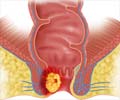A study conducted by experts from Boston University School of Medicine (BUSM) and Boston Medical Center (BMC) suggests that sexual behaviour counselling during drug addiction treatment
A new counseling regime on safe sex during drug addiction treatment may lead the way in cutting the risk of HIV infection in potentially high-risk groups, suggests a study conducted by experts from Boston University School of Medicine (BUSM) and Boston Medical Center (BMC).
Appearing in the journal Addiction, the researcher focused on Russian substance-dependent individuals because alcohol use is highly pervasive in Russia, and has been associated with sexual HIV risk-taking behavior."A behavioral intervention to reduce unsafe sex is an essential component to HIV prevention, and is critical in the absence of a cure or vaccine," said lead author Dr. Jeffrey Samet, chief of the Section of General Internal Medicine at BMC and BUSM.
During the study, the current method used to decrease unsafe sexual behavior was compared with the Russian Partnership to Reduce the Epidemic Via Engagement in Narcology Treatment (PREVENT) intervention program.
People participating in the study were HIV-positive and negative, and were assigned to either the PREVENT program or the standard addiction treatment.
PREVENT sessions took place at the hospital, and involved obtaining HIV test results, discussion of personal risk and creation of a behavioral change plan.
The participants were explained the risk reduction plan to promote safe sex that included using condoms, building sexual-negotiation skills, developing positive attitudes regarding safe sex, and emphasizing alcohol and drugs role in impairing judgment.
Telephone updates were carried out for three months after the subjects were discharged from the hospital, to assess their personal long-term risk reduction goals and plans.
People assigned to the standard addiction treatment program received the usual addiction treatment at the hospital, including HIV testing. They, however, did not receive any sexual behavior counseling.
Those already infected with HIV, and those who tested positive, received a 20-minute HIV post-test counseling session that included creating risk reduction goals and a referral to an HIV care program.
The subjects were contacted for study check ups, but not counseled.
Both participants of the standard addiction treatment and PREVENT program were given condoms when they left the hospital.
Upon comparing the two forms of intervention, the researchers found that participants of the PREVENT program had a higher percentage of safe sex than did the standard addiction participants at the six month follow-up visits.
"Both control and intervention groups had improvements in the percentage of safe sex occurrences, restraining from unprotected sex and increasing condom use between baseline and the three month follow-up. While the intervention group maintained or improved their safe sex behaviors at the six month follow-up, the standard addiction treatment group worsened," said Samet.
The researchers say that their study's results suggest that an HIV intervention program targeting the sexual behaviors of alcohol and drug users is feasible in inpatient substance abuse treatment settings, and is effective in increasing safe sex.
Source-ANI
TAN/L














